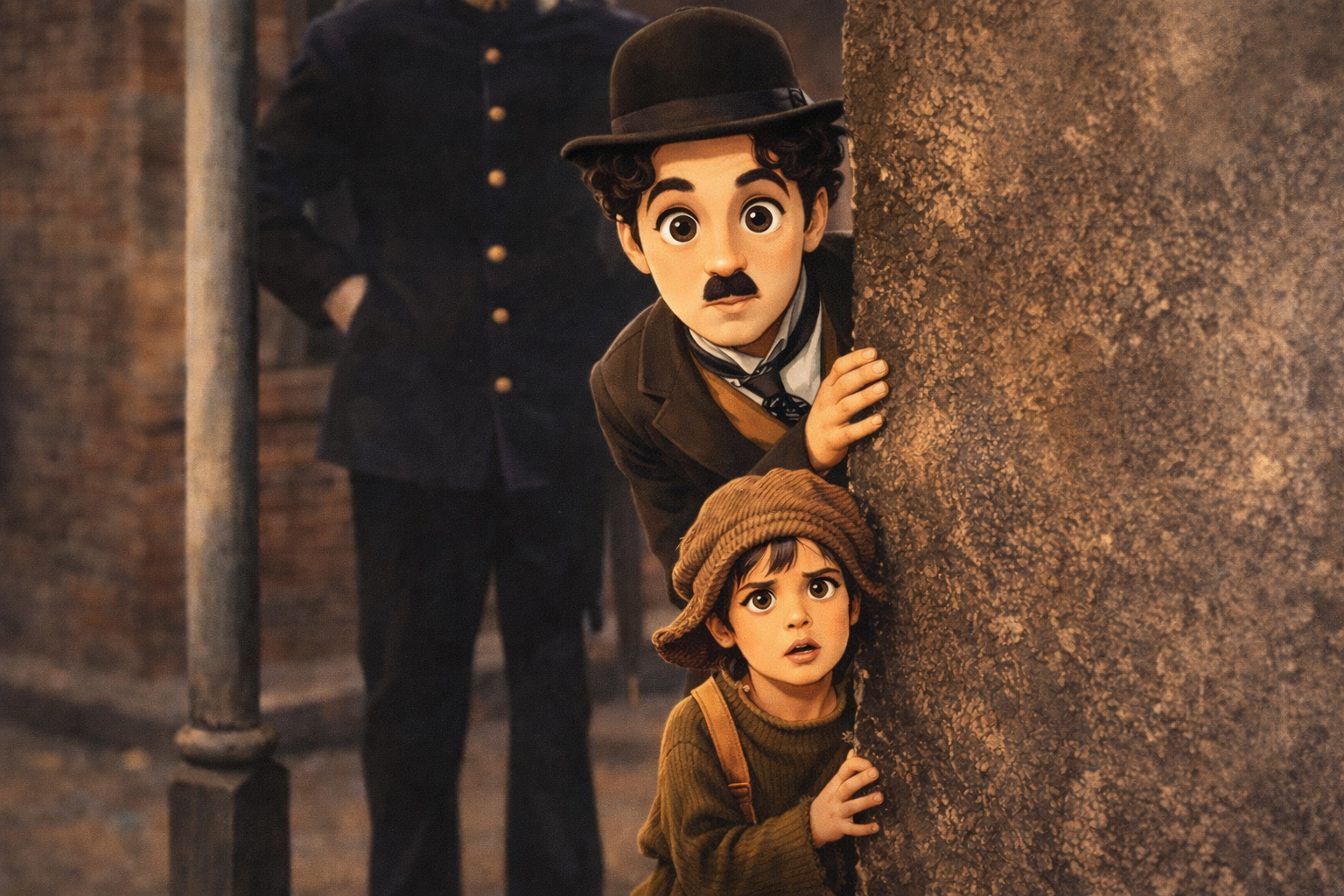Charles Spencer Chaplin was born on April 16, 1889, in the rough streets of London, a child of music-hall performers. Poverty was his earliest stage, hunger his first audience.
His father, Charles Chaplin Sr., was largely absent, and his mother, Hannah Chaplin, struggled with mental health issues. Chaplin and his half-brother, Sydney, spent much of their childhood in workhouses and orphanages.
“I was hardly aware of a crisis, for I was always in one,”
he would later recall. Despite these hardships, young Charlie showed a knack for performance early on.
At just 5 years old, he took the stage to sing when his mother’s voice failed during a performance. By age 9, he was part of a clog-dancing troupe, and soon after, began acting in vaudeville and stage plays.
The Little Tramp
By age 19, he joined Fred Karno’s comedy troupe, touring America. There, in 1914, he stepped in front of a camera and created a figure the world would never forget — the Little Tramp.
Bowler hat, cane, twirling mustache, and a walk that was part swagger, part stumble — a clown whose silence spoke volumes.
“A day without laughter is a day wasted,” he believed, and so he built a universe where even tears could dance.
One of the Best Actors in the World
Chaplin didn’t just act — he wrote, directed, produced, edited and composed.
From The Kid (1921) to City Lights (1931), from Modern Times (1936) to The Great Dictator (1940), he fused humor with humanity.
In The Great Dictator, he courageously mocked Adolf Hitler, delivering a powerful final speech calling for peace and humanity—one of the most famous monologues in cinema history.
“We think too much and feel too little. More than machinery we need humanity; more than cleverness we need kindness and gentleness.”
Chaplin quickly became the most famous actor in the world. With slapstick comedy and deep emotional resonance, his films touched audiences across all cultures and languages.
Though sound had entered cinema by the late 1920s, Chaplin resisted “talkies” and continued to make silent or semi-silent films, believing in the universality of visual storytelling.
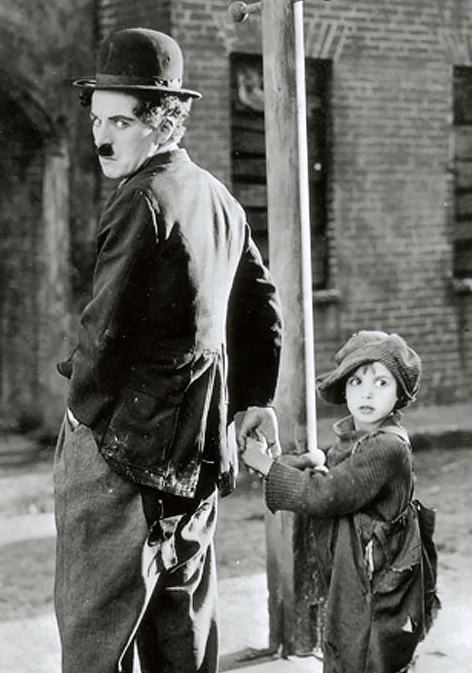
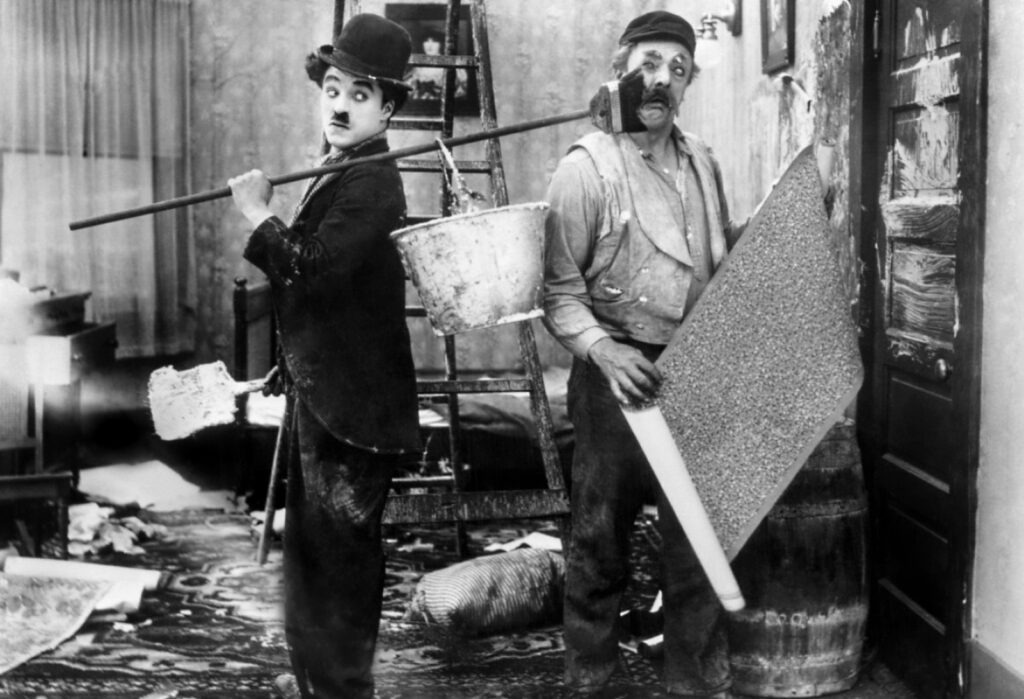
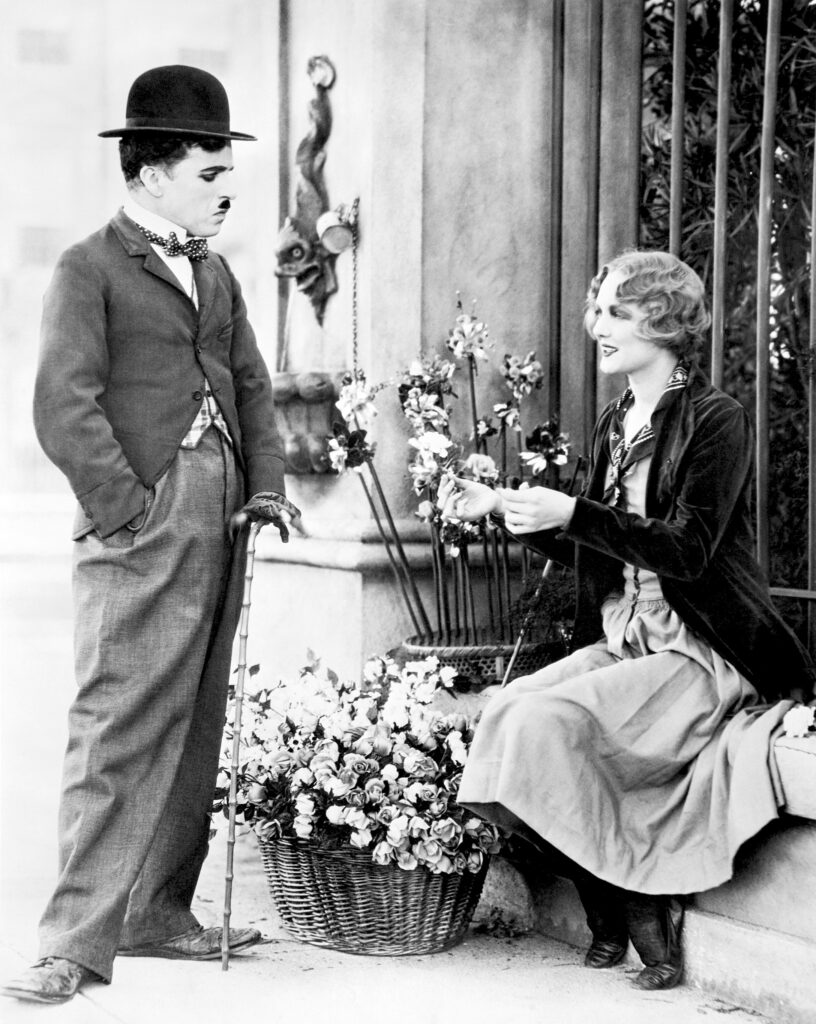
Honorary Academy Award
Fame crowned him, yet controversy chased him. Political accusations, personal scandals, and exile from America in 1952 could not dim his light. He found a final home in Switzerland, where he continued to create, love, and reflect.
In 1972, Chaplin returned to the U.S. for the first time in 20 years to receive an Honorary Academy Award for his contributions to cinema. The audience gave him a 12-minute standing ovation—the longest in Oscar history.
The Eternal Tramp
He was knighted by Queen Elizabeth II in 1975, becoming Sir Charlie Chaplin.
Charlie Chaplin died peacefully on Christmas Day, 1977, at the age of 88. His life and work continue to inspire generations of filmmakers, comedians, and artists. He remains the eternal Tramp, walking toward the horizon, cane in hand, smile in heart, whispering:
“Life is a tragedy when seen in close-up, but a comedy in long-shot.”
Chaplin transformed cinema, proving that humor could convey profound messages. His ability to blend laughter with pathos made him a timeless figure.
Today, the image of “The Tramp” remains a global symbol of resilience, compassion, and the human spirit.
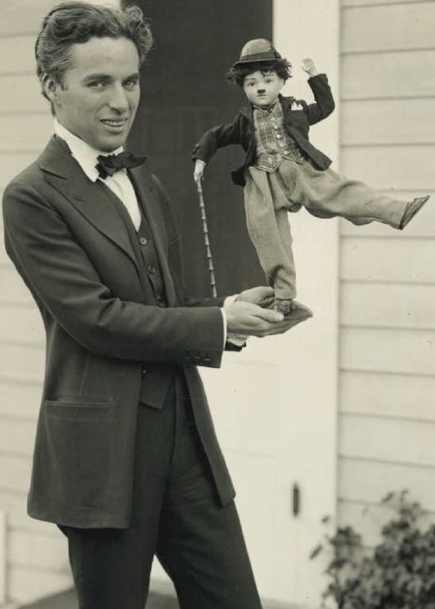
The Final Speech from The Great Dictator
“I’m sorry, but I don’t want to be an emperor. That’s not my business. I don’t want to rule or conquer anyone. I should like to help everyone – if possible – Jew, Gentile – black man – white. We all want to help one another. Human beings are like that.
We want to live by each other’s happiness – not by each other’s misery. We don’t want to hate and despise one another. In this world there is room for everyone. And the good earth is rich and can provide for everyone. The way of life can be free and beautiful, but we have lost the way.“
